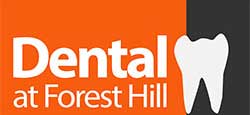Dental Implants vs. Dental Bridges
Replacing Missing Teeth
When it comes to replacing missing teeth, dental implants and dental bridges are two popular options. Both can help restore your smile and improve your oral health. But which one is right for you?

Which One Should You Choose?
Confused between dental implants and dental bridges? This comprehensive article discusses the pros and cons of both and helps you make an informed decision.
It’s important to talk to your dentist about both options to determine which one is right for you. Your dentist can evaluate your oral health, jawbone density, and other factors to help you make an informed decision.
The decision to choose between dental implants and dental bridges ultimately depends on your individual needs and preferences.
Which One Should You Choose?
In this article, we’ll take a closer look at the differences between dental implants and dental bridges, including their advantages and disadvantages.



If you’re looking for a long-term solution that provides a natural-looking and durable replacement tooth, dental implants may be the way to go. However, if you’re looking for a cost-effective and quick solution, dental bridges may be a better choice.
Dental Implants
What are dental implants?
Dental implants are artificial tooth roots that are surgically placed into your jawbone. They provide a strong and sturdy foundation for replacement teeth, such as crowns, bridges, or dentures. Dental implants are made of titanium, a biocompatible material that fuses with your jawbone over time. Once the implant has fused with your bone, a connector called an abutment is placed on top of the implant, which supports the replacement tooth.
Advantages of dental implants
- Long-lasting: Dental implants are a long-term solution and can last for decades with proper care.
- Natural-looking: Implants look and feel like your natural teeth, so you can smile and speak with confidence.
- Strong and stable: Dental implants provide a strong and stable foundation for replacement teeth, allowing you to eat and speak without worrying about them slipping or shifting.
- Preserve bone: Implants stimulate the jawbone, which helps preserve bone density and prevent bone loss.
Disadvantages of dental implants
- Cost: Dental implants can be more expensive than other tooth replacement options, especially if you need multiple implants.
- Surgical procedure: Implant placement requires surgery, which can be uncomfortable and may require a longer recovery time.
- Time-consuming: The process of getting dental implants can take several months, as it requires time for the implant to fuse with the bone.
- Not suitable for everyone: You need to have enough jawbone density and healthy gums to be a candidate for dental implants.
Dental Bridges
What are dental bridges?
Dental bridges are another tooth replacement option that uses artificial teeth to fill the gap left by missing teeth. Bridges are usually made up of one or more artificial teeth, called pontics, that are anchored in place by dental crowns on either side of the gap. The crowns are attached to the remaining natural teeth or dental implants on either side of the gap.
Advantages of dental bridges
- Quick and easy: Getting a dental bridge is usually a faster process than getting dental implants, as it doesn’t require surgery.
- Cost-effective: Dental bridges are generally less expensive than dental implants.
- Not as invasive: Because dental bridges are less invasive than a dental implant.
Disadvantages of dental bridges
- Less durable: Dental bridges typically last between 5 to 15 years, depending on how well they are taken care of.
- Can damage natural teeth: Dental bridges require the natural teeth on either side of the gap to be filed down in order to fit the dental crowns, which can e loss: Because dental bridges don’t stimulate the jawbone like dental implants do, they may lead to bone loss over time.
- Less natural-looking: Dental bridges may not look as natural as dental implants, especially if they are visible when you smile or talk.
Choosing between dental implants and dental bridges
Choosing between dental implants and dental bridges can be a difficult decision, but it’s important to weigh the pros and cons of each option. Dental implants provide a long-lasting and natural-looking solution, while dental bridges are a cost-effective and less invasive alternative.
Ultimately, the decision should be based on your individual needs, oral health, and preferences. Consult with your dentist to determine which option is right for you, and remember to take good care of your teeth and gums to ensure a healthy and happy smile.
FAQs
All You Need To Keep Smiling
Payment Options / Plans
Payment plans are essentially loans, which can support you in managing the high cost of dental treatment. Rather than paying for your dental work in an upfront lumpsum, a payment plan allows you to pay in instalments over a period of time. We have onboard, payment plan service providers who will make your payment plan’s instalments even more affordable.
There are several payment options available at our surgery including Cash, Cheque, EFTPOS, Credit Card, HICAPS, AMEX and Direct Deposit.


